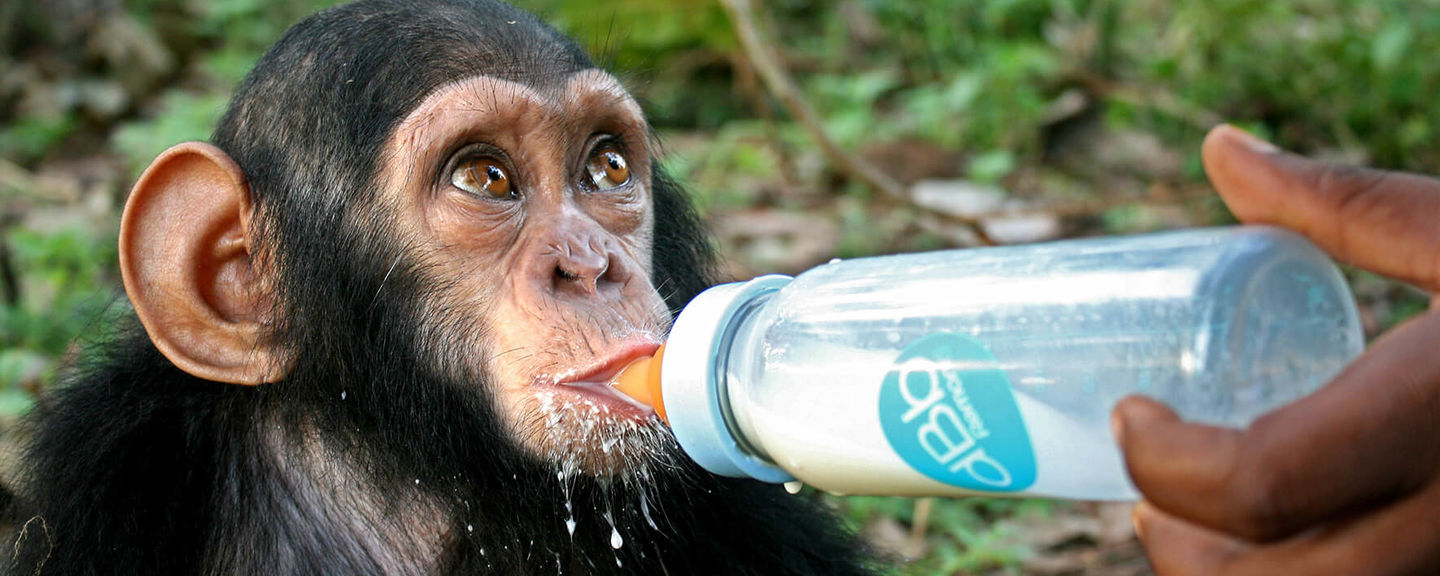Research At Tchimpounga

The Tchimpounga sanctuary hosts several research groups studying the evolutionary links between humans and chimpanzees.
Even though we share approximately 98% of our DNA with chimps, there are several important differences ranging from the physical – for example, humans walk on two legs while chimpanzees usually use all four limbs to move around – to the cognitive.
Observing chimpanzees without disturbing them in their natural habitat is extremely important to maintaining accurate research results. The orphans at the Tchimpounga sanctuary live in groups much as they would in the wild. This allows for organic social development and learning, and provides researchers with insights into a young wild chimpanzee’s growth.
JGI uses non-invasive research methods to study the links between human and chimpanzee development. They make behavioural observations of young chimpanzees, bonobos, and human children and pose challenges designed to test individual ability to problem solve. By comparing the results of these tests, researchers can help shed light on the evolution of human social cognition. Researchers also examine the importance of individual personalities and emotional responses in problem solving abilities.